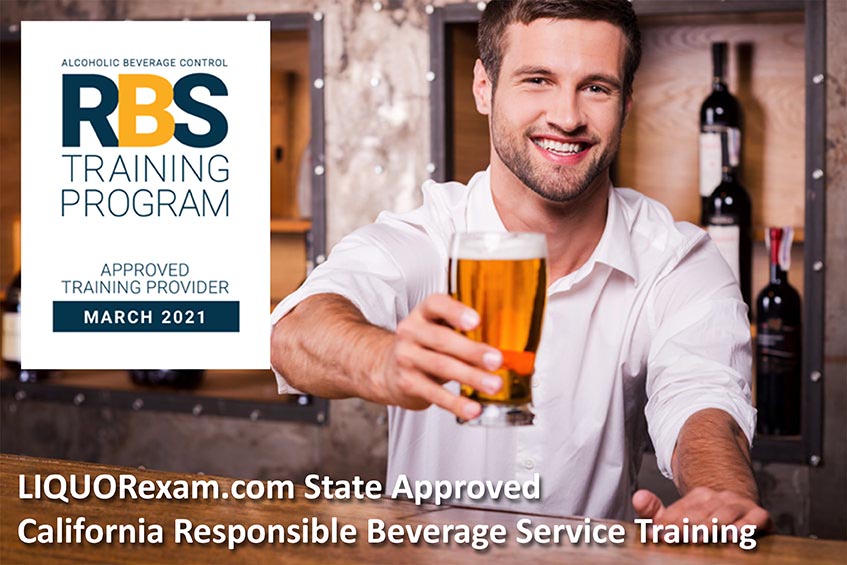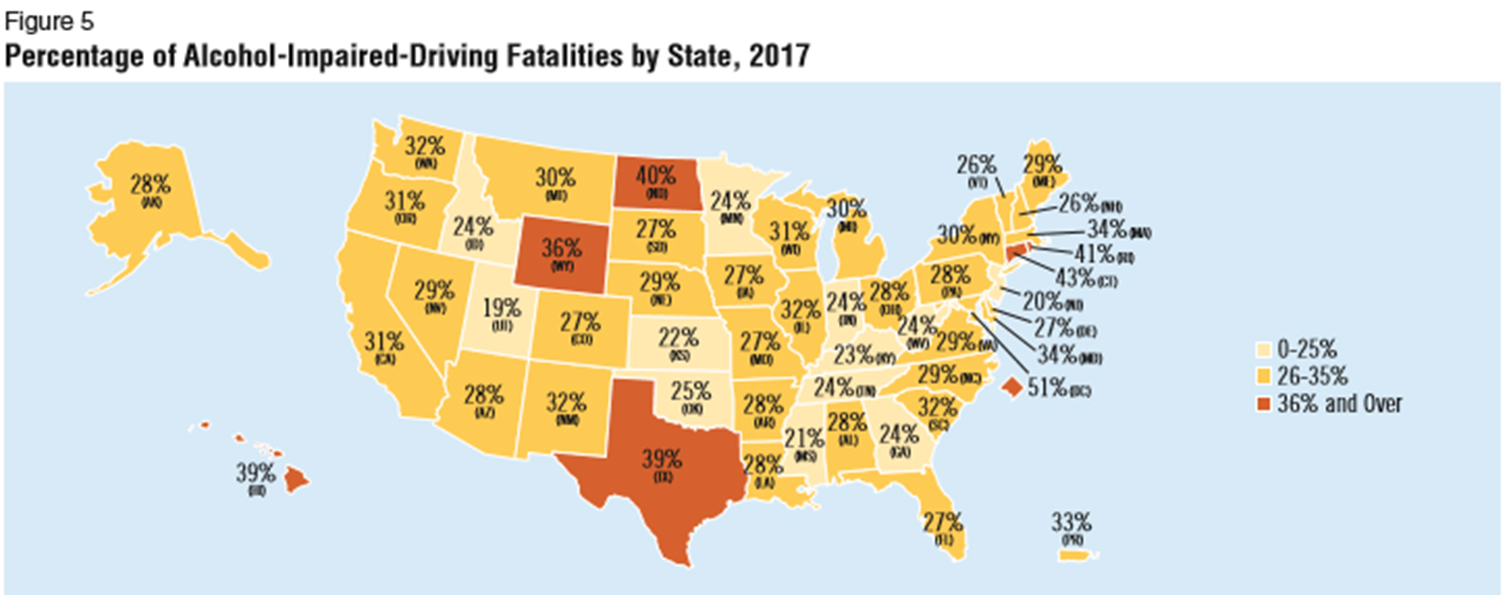Master Responsible Alcohol Solution With Comprehensive Qualification Programs
The proficiency of liable alcohol solution is not merely a regulatory demand; it is a basic element that enhances the track record and operational honesty of facilities within the friendliness market. Comprehensive qualification programs use indispensable understandings right into regional regulations, effective intervention strategies, and client interaction strategies. By investing in these training campaigns, businesses can foster a society of duty among their staff, mitigating threats and enhancing customer contentment. Nevertheless, the course to reliable application and its lasting benefits might not be as uncomplicated as it seems. What challenges lie ahead for those who seek to boost their solution criteria?

Significance of Accountable Alcohol Service
Responsible alcohol solution is essential to promoting public health and security in establishments that offer alcohols. It incorporates a series of techniques made to stop the overconsumption of alcohol, lower the threat of alcohol-related injury, and ensure a secure atmosphere for customers and personnel alike. By supporting accountable service requirements, facilities can alleviate possible incidents of drunkenness, which may cause mishaps, violence, or other unfavorable results.
Moreover, liable alcohol service enhances the total client experience. Patrons are more probable to go back to establishments that prioritize their safety and security and well-being. This commitment cultivates a positive reputation, urging referral references and repeat organization. In addition, facilities that stick to liable solution practices often experience lower insurance costs and reduced lawful liabilities.
Moreover, applying responsible alcohol solution practices lines up with more comprehensive public health and wellness efforts targeted at lowering chemical abuse and promoting community health and wellness. This positive method not just secures specific customers but additionally contributes to a much healthier culture. Eventually, responsible alcohol service is not just a legal commitment; it stands for an ethical commitment to the wellness of consumers and the neighborhood at huge.
Trick Components of Qualification Programs
Accreditation programs for liable alcohol solution typically incorporate several essential elements designed to outfit team with the needed abilities and understanding to serve alcohol safely. These programs frequently include detailed training on local and state alcohol regulations, ensuring that participants comprehend their legal responsibilities and the effects of stopping working to conform.
An additional crucial part is the recognition of signs of intoxication - servsafe food handlers card. Personnel are educated to acknowledge behavioral hints suggesting when a customer might be over-served, allowing them to intervene suitably
Furthermore, reliable interaction strategies are highlighted, instructing staff just how to engage with customers in a manner that advertises responsible alcohol consumption. This includes training in problem resolution strategies, enabling team to manage hard situations smoothly and skillfully.
In addition, programs frequently integrate functional scenarios and role-playing workouts, providing participants with real-life instances to practice their skills. Ongoing education and sources are crucial for maintaining knowledge and abilities over time, go to this web-site as laws and best methods progress. With each other, these components produce an extensive framework that equips team to promote a much safer anchor drinking atmosphere while reducing liability for establishments.
Benefits for Staff and Establishments
Team and facilities alike reap considerable take advantage of getting involved in responsible alcohol solution accreditation programs. For team, these programs enhance knowledge and abilities associated with alcohol service, furnishing them to recognize indicators of intoxication and execute reliable treatment approaches. This training not just cultivates a feeling of self-confidence among staff members but additionally advertises a society of safety and obligation in the office.
For establishments, buying accreditation programs can lead to lowered obligation and fewer cases associated with over-serving. By ensuring that personnel are well-trained in responsible solution methods, facilities can mitigate threats related to alcohol-related cases, thereby securing their credibility and economic security. Furthermore, lots of territories provide motivations, such as reduced insurance costs, for accredited facilities.
Additionally, carrying out qualified methods can boost client complete satisfaction and commitment. Clients are most likely to return to places that prioritize their safety and security and health. Ultimately, a commitment to liable alcohol service not just grows a favorable atmosphere yet likewise improves the total functional effectiveness of establishments, making it a clever investment for long-lasting success in the hospitality industry.
Typical Challenges in Alcohol Solution
Making certain efficient alcohol service is not without its challenges, also in establishments committed to liable techniques. One considerable obstacle is the requirement for personnel to precisely assess customers' alcohol usage degrees. servsafe food handlers card. This needs an eager understanding of just how different factors, such as food consumption, tolerance, and private differences, influence intoxication
Additionally, the stress to optimize sales can clash with responsible solution protocols. Staff members may deal with straight from the source problems in declining service to intoxicated individuals, especially in social settings where peer pressure and assumptions are prevalent.
Another obstacle is staying upgraded with local regulations and regulations pertaining to alcohol solution. Compliance is essential, yet frequent adjustments in regulation can produce complication and may bring about unintended violations.
Training programs might not always cover the nuances of real-world scenarios, leaving staff unfit to manage complex situations. Inconsistent interaction in between monitoring and staff members pertaining to assumptions for accountable service can even more intensify these concerns.
To navigate these obstacles properly, facilities should foster an environment of support, highlighting the importance of responsible service while supplying the necessary devices and training for staff to do well.
Steps to Acquire Qualification
To acquire Accountable Alcohol Solution Accreditation, candidates typically start by investigating the details requirements mandated by their regional regulative authorities. These needs might vary substantially depending upon the region, so it is vital to acquaint oneself with the pertinent regulations and guidelines.

After choosing a program, candidates must complete the requisite training, which typically covers subjects such as recognizing drunkenness, understanding legal obligations, and implementing techniques for accountable service. Individuals must proactively engage with the product, as this expertise is essential for reliable alcohol solution.

Following training, candidates normally take an assessment to analyze their understanding of the product. Effective conclusion of this analysis leads to qualification.
Verdict
Finally, grasping accountable alcohol service with extensive certification programs is important for advertising safety and security and improving consumer experiences within the hospitality industry. By outfitting staff with the essential understanding and abilities, establishments not just mitigate risks connected with overconsumption and legal responsibilities but also cultivate a society of responsibility. This dedication to responsible solution eventually leads to boosted consumer commitment and operational success, strengthening the value of continuous training and adherence to alcohol solution criteria.